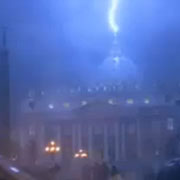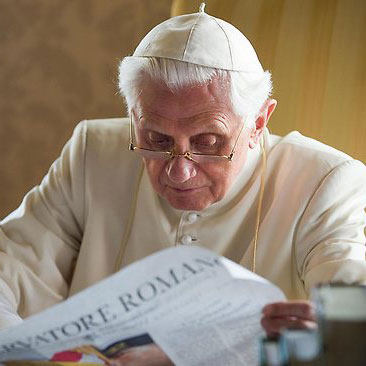Only last week, a friend and I were wrestling with the saying which appears in today’s Gospel: “You must call no one on earth your father, since you have only one Father, and he is in heaven.” (Mt 23:10)
You’ve got to admit, when you combine this saying of Jesus with the Catholic custom of addressing priests as Father, we have left ourselves open to attack from Biblical Fundamentalists.
Nonetheless, I have no problem concluding that on this occasion, our Lord was engaging in hyperbole (in contrast to, say, John, chapter 6.) After all, this saying by our Lord didn’t prevent St Paul from calling himself father: “For I became your father in Christ Jesus through the gospel.” (1 Cor. 4:14–15)
As for the practice of referring to other Christians as his children, St Paul is joined by St Peter and St John. 1 Cor 4:17. 1 Tim 1:2. Tit 1:4. Phm 1:10. 1 Pet 5:13. 2 Cor 12:14. Gal 4:19. 1 Jn 2:1. . . You get the idea.
So let’s allow that Jesus has engaged in a bit of hyperbole in today’s Gospel. To what end? What lesson is he teaching?
I found a clue in the Collect:
Guard your Church, we pray, O Lord,
in your unceasing mercy,
and, since without you mortal humanity is sure to fall,
may we be kept by your constant helps from all harm
and directed to all that brings salvation.
But to be honest, I first saw it in the Closing Prayer in today’s Office, which is the same prayer as the Collect, but translated differently:
Watch over your Church, Lord,
with unfailing compassion,
and since, left to ourselves, we are prone to evil,
by your grace turn us away from all that is harmful
and direct us into the way of salvation.
(Father Z provides the 1973 ICEL translation. It doesn’t illustrate what I’m about to say at all. I don’t know how people can believe the old Missal is better than the present Missal, flawed though it is.)
The pertinent point is in line three. “Without you mortal humanity is sure to fall.” “Left to ourselves, we are prone to evil.”
That’s a bit grim, isn’t it? Almost Jansenistic? But yet, how strangely reassuring, in light of the scandal looming over the Curia. (Robert Moynihan’s coverage of that unfolding drama is excellent. His reporting is suffused with a love for truth which is is no way compromised by an equally sincere love for the Church.)
Should we be surprised, if evil has infiltrated the Vatican? It’s the way of the world, isn’t it? — that where great goodness is found, great evil is found also? And we have been blessed with remarkably holy popes over the last century, Benedict included. Only a fool would believe that everyone in the Vatican is angelic. Even the Twelve had their Judas.
As the Church prayed today, “left to ourselves, we are prone to evil.” This is maybe what our Lord was getting at, when he told us that “you have only one Father, and he is in Heaven.” Human beings are flawed. They will let you down. You can’t find in them what you will find in God. So don’t make gods of men.
Perfect goodness subsists only in God. The evil doings of men — even priests and bishops in the Vatican — is no proof against goodness. It only demonstrates that we have only one Father, and he is in Heaven.
(Fr Pat O’Sullivan SJ — who is so quotable — makes a similar point relating to marriage. I can’t quite recall it, but it’s along these lines: “A marriage matures when both spouses realise — and are satisfied — that they can’t give to the other, or receive from them, the unconditional love only God can provide.”)






Thanks for that, Fr John. I have no problem calling priests father except when they’re young enough to be my great grandson, then I struggle with it.
The reading you quote is reassuring, as are Christ’s words about leaving the wheat and tares alone until the harvest. But that doesn’t mean the tares must be protected from the glare of publicity, does it?
Indeed MuMu, I’m of one mind with you! That’s why I appreciate Moynihan’s coverage. He was one of the first English-speaking Vaticanisti to break the story, which aroused criticism from Curial priests – perhaps good, holy workers in the vineyard – who felt betrayed that he had lent his credibility to unsubstantiated reports. Moynihan’s reply is compelling, and demonstrates how loyalty will not swerve him from truth.
I think Fr Pat’s line is something like “You have to learn to forgive each other for not being God.”